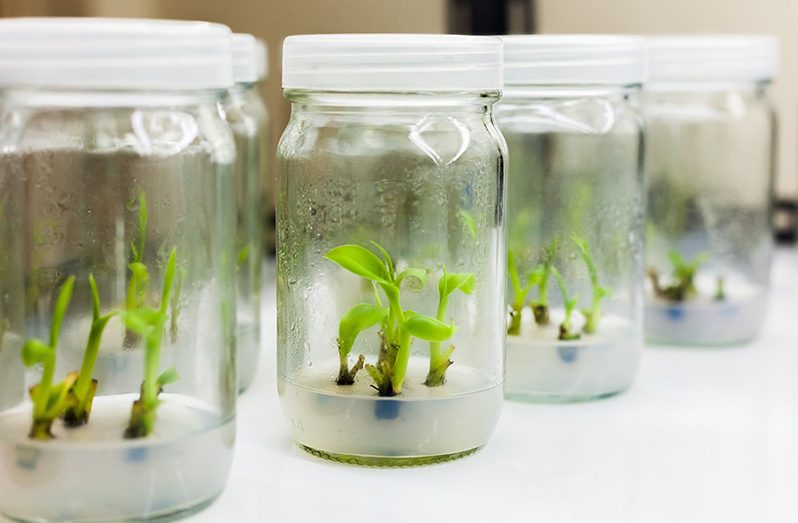CONSTRUCTION work for a tissue culture laboratory at La Bonne Intention (LBI), East Coast Demerara, is underway, and once completed, the Inter-American Development Bank (IDB)-funded project will see Guyana improving its food production standards.
In a recent invited comment to the Guyana Chronicle, Agriculture Minister Zulfikar Mustapha stated that the project will see the country being able to produce high-quality products for the regional and international markets.
He also revealed that the facility will feature a food-safety laboratory.
“This here will take our production level to new heights, where we will produce and comply with international standards. Our produce will be of a better quality to export, and we will be ready for the global market,” Minister Mustapha said.
Tissue culture involves the cultivation of plant cells, tissues, or organs on specially formulated nutrient media. Under the right conditions, an entire plant can be regenerated from a single cell.
Plant tissue culture is a technique that has been around for more than 30 years.
Back in March of this year, Vice-President Dr. Bharrat Jagdeo disclosed that works had begun to solidify a workplan with experts from India to leverage research and innovative technologies, with the aim of boosting local production in several agricultural industries.
Among these discussions was the use of tissue culture.
Both Vice-President Jagdeo and President Dr. Irfaan Ali had visited the South-Asian country earlier this year.
Jagdeo had explained that Guyana will need varying expertise for this to happen.
“We need the expertise from many parts of the world to transform these industries
into agri-businesses,” he’d said, adding: “In India, there are higher levels of productivity. The variety of cane will give you probably two to three times the output that we are getting from a single acre of cane here. Similarly, the rice varieties yield much more.”
He’d also shared that India is able to see exceptional yields with its use of nano-fertilisers, which are said to produce high-yielding crops, and are more advantageous compared to the traditional fertilisers used here in Guyana.
Nano-fertilisers are also said to increase soil fertility yield and quality parameters of the crop. They are non-toxic, and can also minimise cost while maximising profit.


.jpg)











